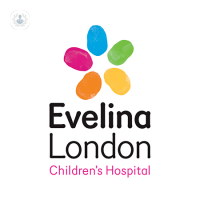Paediatric rheumatology
Dr Clarissa Pilkington - Rheumatology
Created on: 12-10-2013
Updated on: 07-04-2023
Edited by: Karolyn Judge
What is paediatric rheumatology?
Paediatric rheumatology is a subspecialty of rheumatology dedicated to the diagnosis and treatment of inflammatory diseases and disorders, which can affect the bones, muscles, joints and tendons.
It can also treat other diseases of autoimmune origin in children and/or teenagers. Rheumatic diseases in children are different from those in adults. Firstly, because the body of a child is not the same as an adult, and they have their own characteristics in terms of symptoms, diagnosis, treatment and outlook, in addition to the fact that the body is constantly growing.

What conditions does a paediatric rheumatologist treat?
There are many conditions that can be treated by paediatric rheumatology consultants, but they are often inflammation or auto-immune disorders. Common rheumatic conditions in children include:
- Juvenile arthritis
- Juvenile dermatomyositis
- Paediatric vasculitis, such as Kawasaki disease
- Lupus
- Auto-inflammatory syndromes
- Localised and systemic scleroderma
- Juvenile rheumatoid arthritis
- Joint hypermobility
- Osteomyelitis
What's the most common paediatric rheumatic condition?
Lupus and juvenile arthritis are the most common rheumatic paediatric conditions.
What subspecialties are there in paediatric rheumatology?
There are no subspecialties within paediatric rheumatology because it is a subspecialty itself within rheumatology.
However, there are some rheumatologists who specialise in each illness or condition, such as experts in lupus, rheumatoid arthritis or other rheumatic diseases.
When should you take a child to a paediatric rheumatologist?
Rheumatic diseases usually present with musculoskeletal symptoms, but sometimes other symptoms that may be suggestive of them.
The following symptoms are possible reasons to see a paediatric rheumatologist:
- Sore joints, with signs of inflammation (swelling, rashes, warmth, redness or nodules)
- Fatigue
- Joint stiffness
- Prolonged fever, or recurrent fevers
Some children with rheumatic diseases describe pain. However, the characteristics of this pain can guide the specialist towards one diagnosis or another. Thus, it must be assessed whether the pain is mechanical (appears with exercise and disappears when resting) or inflammatory (occurs at rest), whether the onset is related to trauma, how long they have had pain, where it is located and where it radiates from, as well as if it limits the child's daily activities.
How are paediatric rheumatic diseases diagnosed?
Juvenile arthritis and other rheumatic conditions are diagnosed using various types of blood tests. However, the process for all conditions begins with taking the patient's history and a physical exam. The next step is when a specific diagnostic blood test is done. These tests include:
Complete blood count (CBC)
This is done to see whether white blood cell, red blood cell, and platelet levels are normal.
Sedimentation rate
This test can detect inflammation.
Antinuclear antibody (ANA) test
An ANA test checks the levels of antibodies in the blood.
Creatinine
The creatinine blood tests checks for kidney disease, which can be a complication of juvenile rheumatoid arthritis.
Hematocrit
The hematocrit test measures the number of red blood cells.
White blood cell count
This test measures white blood cell levels in the blood.
Rheumatoid factor test
This looks at whether rheumatoid factor is present in the blood.
Uric acid
This can help to diagnose paediatric gout.
How can I make an appointment with a paediatric rheumatologist?
There are several ways to make an appointment with a paediatric rheumatologist. You may receive a referral, or you might make an appointment directly.






